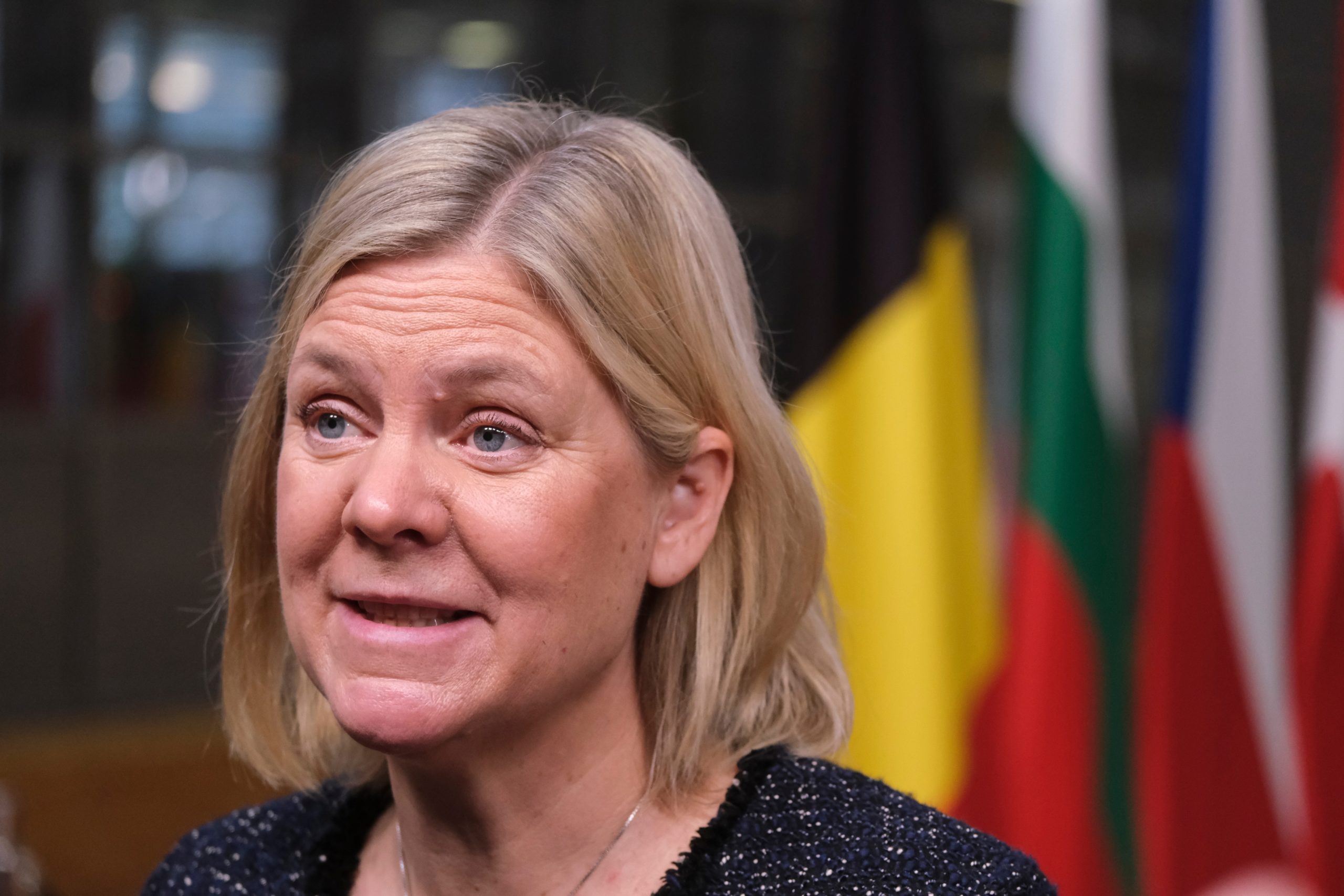
After more than a half-decade of soaring rates of violence, theft, sex crime, drug trafficking, and ethnoreligious segregation, Sweden’s Easter riots, which left more than 100 police officers injured, have prompted Prime Minister Magdalena Andersson to acknowledge that the state has failed to integrate its vast immigrant population.
The left-liberal prime minister’s long-overdue admission came on Thursday during a press conference where she conceded that the unprecedented level of migration witnessed over the past two decades—paired with the state’s inability to integrate newcomers—had resulted in dangerous parallel societies and rising gang violence, the Copenhagen-based newspaper Berlingske reports.
Trends that began twenty years ago were further accelerated during the European Migrant Crisis of 2015-2016 when Sweden’s Social Democrat-led government resettled more people per capita than any other member state in the European Union. What resulted in the years that followed—and which continue to this day, despite largely being largely ignored by the country’s political class—has been widespread societal disorder in the form of rising gang violence and skyrocketing sex crime, among other things.
Now, following the Easter riots that erupted in immigrant-dominated communities across the country in the wake of a public Koran burning, the prime minister has been forced to address—or at least pretend to address—the elephant in the room.
During the press conference, Andersson blamed the riots on ‘juvenile delinquency’ and asserted that Islamism and right-wing extremism had been allowed to gain a foothold in Sweden, saying that both were “ready to go to great lengths to harm our society.”
“Segregation has been allowed to go so far that we have parallel societies in Sweden. That we live in the same country, but in completely different realities,” Andersson, in a rare moment of self-reflection, said to members of the press.
“Integration wasn’t effective, while at the same time we had too much immigration,” she admitted, adding: “Society was too weak—and resources for police and social services were too weak.”
To combat the growing problem of juvenile delinquency, Andersson announced government plans to establish special boards where social services and police will work in tandem to prevent anti-social behavior in at-risk youth.
To ensure state-dependent immigrants properly integrate into Swedish society, Prime Minister Andersson and Minister for Integration and Migration Anders Ygeman both signaled that, in the future, those living on social welfare benefits will be expected to fulfill social obligations that were not previously asked of them.
Those “who receive financial assistance must be met with a clear expectation. It’s about duty and right,” Ygeman said.
Andersson, for her part, stated: “People need to see their parents go to work. It is an important proposal today that everyone contributes to society.”
In the past twenty years, the number of foreign-born people living in Sweden has doubled, climbing to 2 million—roughly 20% of the population.
